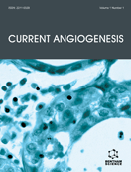Abstract
Optical imaging has emerged as a method of choice for a number of anatomical and physiological studies, especially in animal models. Optical methods offer distinct advantages such as high spatio-temporal resolution, wide array of available contrast moieties (such as fluorescent dyes, microspheres etc.) and the capability of quantitative “functional imaging”. In this review, we focus on techniques that are adept for imaging microvascular morphology and perfusion. Measures of the microvascular architecture include the number, spacing, density and radii of blood vessels. Perfusion indices include the relative and absolute microvascular blood flow and metrics derived from tracer kinetic theory, such as the mean transit time. Following detailed descriptions of the biophysics of different optical imaging approaches, we conclude with a systematic comparison of the strengths and weakness of each depending on the intended application. We believe this review will serve as a useful starting point for anyone interested in the pre-clinical characterization of microvascular morphology and perfusion in health and disease.
Keywords: Optical imaging, microvascular, vasculature, perfusion, blood vessel, blood flow, angiogenesis, endothelium, functional.
 5
5

